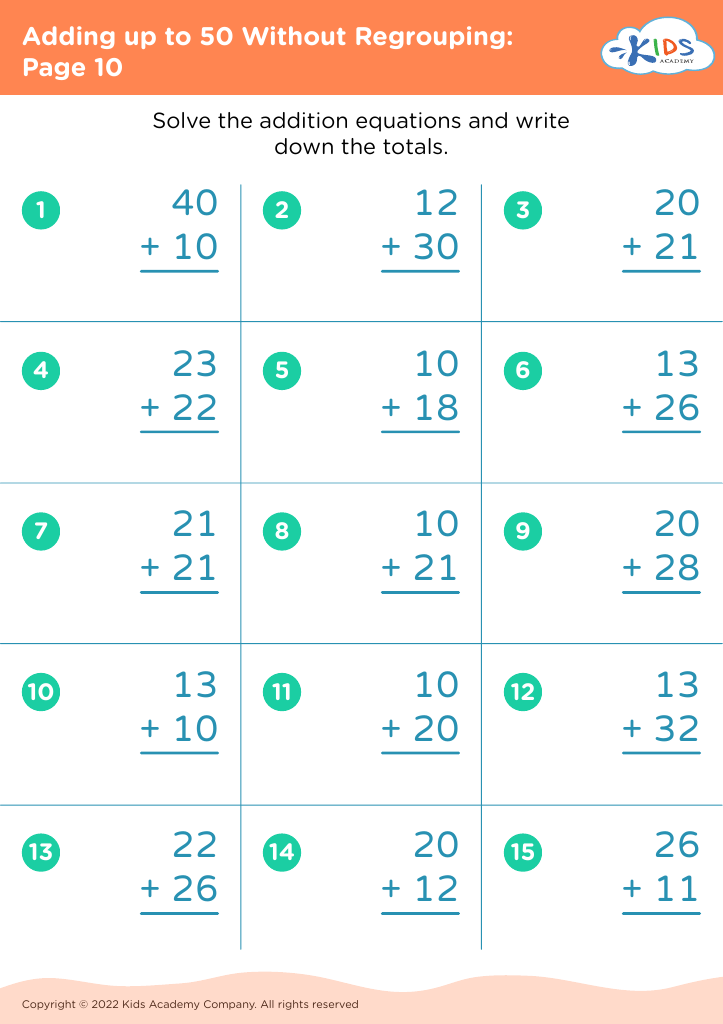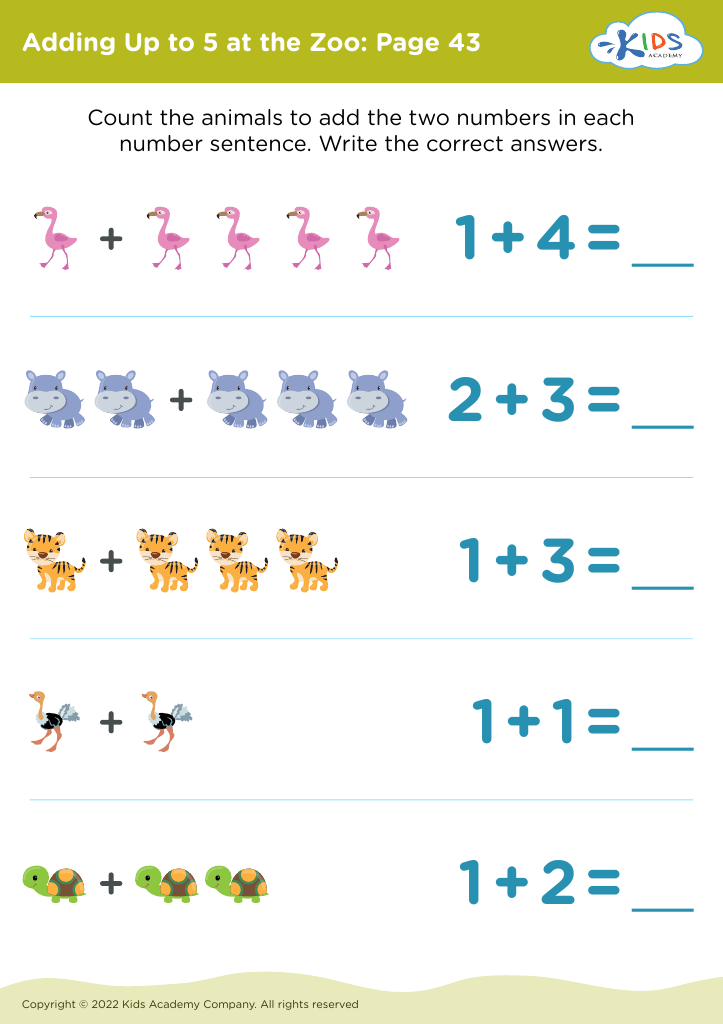Mathematical thinking Math Worksheets for Ages 3-8
7 filtered results
-
From - To
Discover the joy of learning with our "Mathematical Thinking Math Worksheets" designed for ages 3-8! These engaging worksheets help young learners develop fundamental math skills, from counting and number recognition to sorting and basic problem-solving. Tailored to stimulate critical thinking, these activities encourage creativity while reinforcing essential concepts in a fun and interactive way. Whether at home or in the classroom, our thoughtfully created materials empower children to explore mathematics at their own pace. Enhance your child's learning journey and foster a love for math with our vibrant, age-appropriate worksheets. Start building a strong foundation in mathematical thinking today!
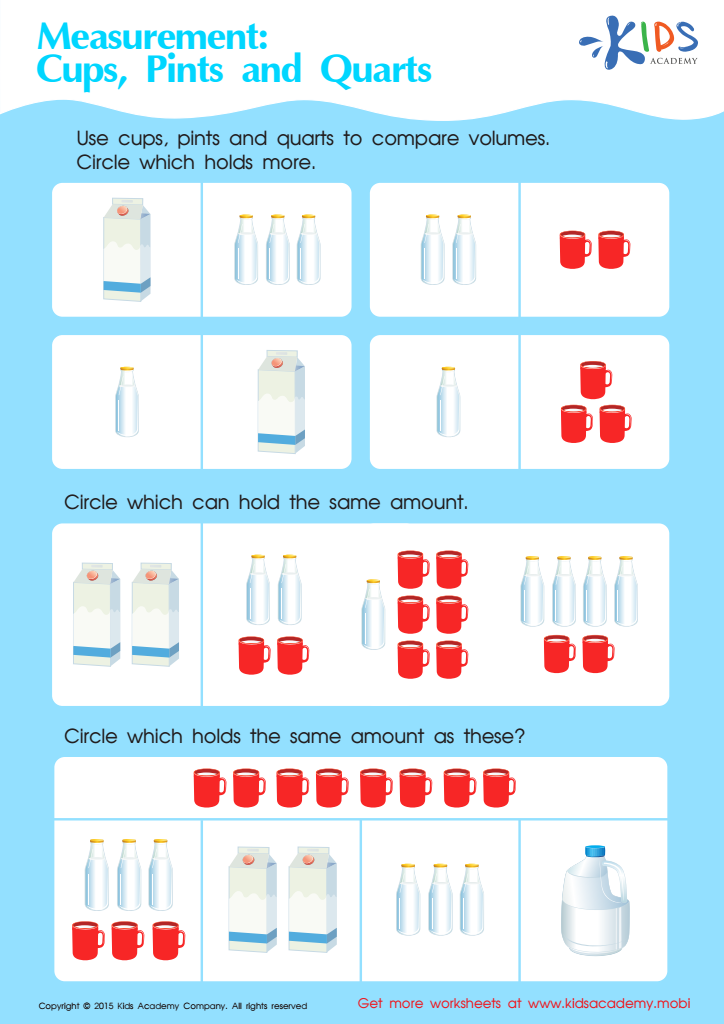

Measurement: Compare Volumes Worksheet
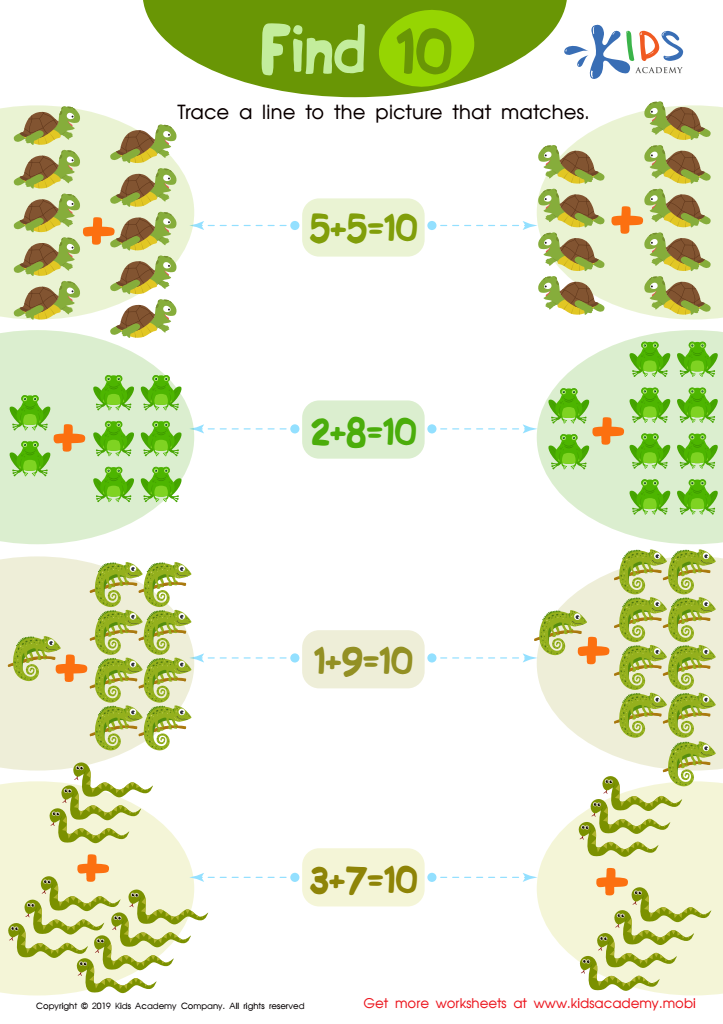

Find 10 Worksheet
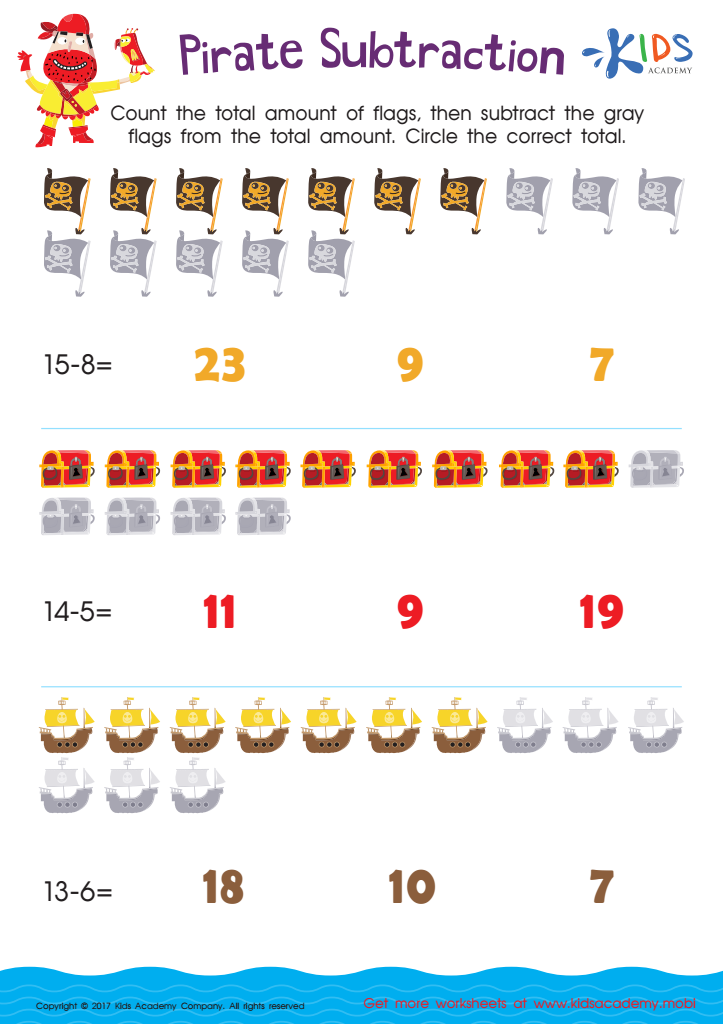

Pirate Subtraction Substraction Worksheet
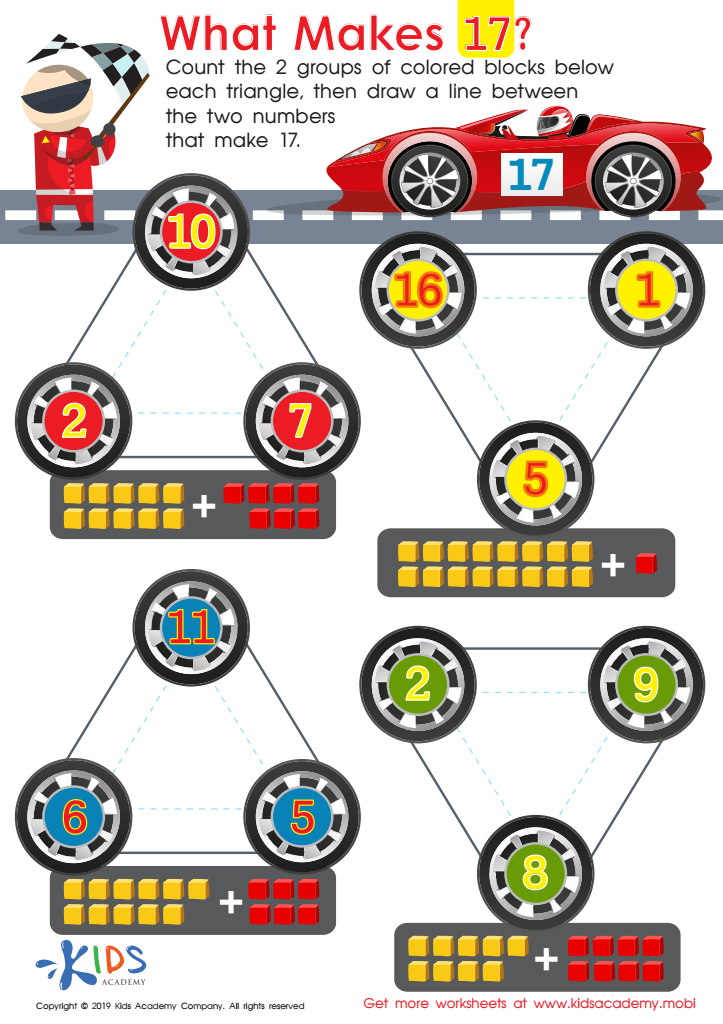

What Makes 17 Worksheet
Mathematical thinking is a crucial foundational skill for children aged 3-8, playing a significant role in their cognitive development and daily lives. During these formative years, children begin to understand basic concepts like numbers, shapes, patterns, and measurements. Fostering mathematical thinking encourages problem-solving, critical thinking, and logical reasoning, which are vital skills they will use throughout their education and everyday life.
Parents and teachers should care about mathematical thinking because it not only supports a child's academic growth but also empowers them in various life situations. Engaging with math early promotes confidence and curiosity, making learning enjoyable and less daunting as they encounter more complex concepts in later grades.
Moreover, introducing math in relatable ways—such as through games, storytelling, or real-life applications—helps children develop a positive attitude towards the subject. This prepares them for a future where competent mathematical skills often correlate with better career opportunities and success.
In summary, early engagement in mathematical thinking equips children with essential skills, encourages a love for learning, and sets the stage for lifelong success in both academic pursuits and everyday challenges. For these reasons, the investment in promoting mathematical thinking in young learners is invaluable.
 Assign to My Students
Assign to My Students
